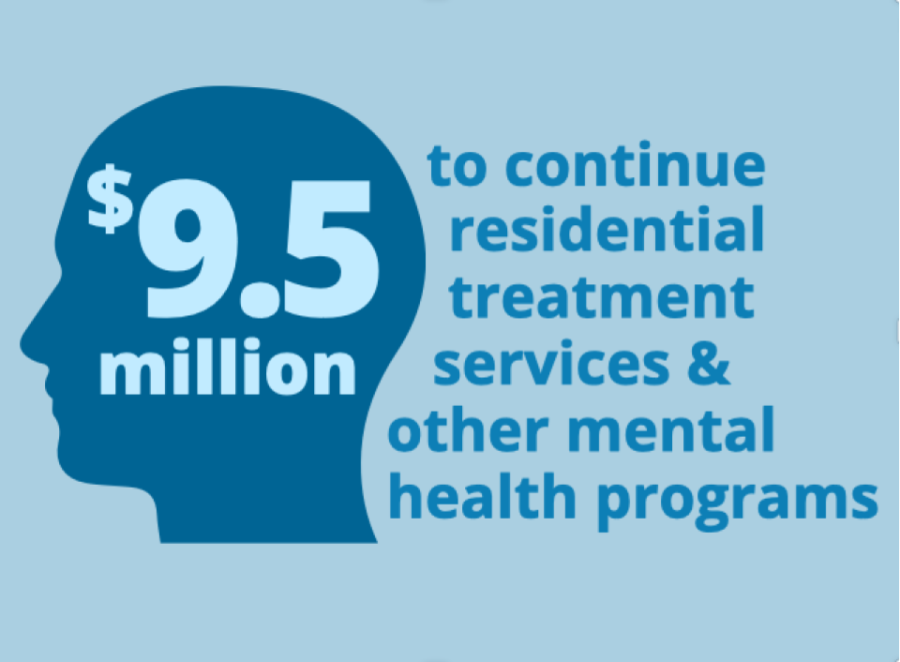Santa Clara County’s investment in mental health
Graphic illustration by Maple Leung
Santa Clara County passed a bill on Jan. 10 to invest millions of dollars into mental health programs, working to strengthen the overall community mental health support system.
February 6, 2023
Due to rising rates of suicides and drug overdoses, Santa Clara County declared a mental health crisis as of January 2022. In response, the county passed a bill on Jan. 10 to invest millions of dollars into mental health programs, working to strengthen the overall community mental health support system.
“I think the competitive culture in the bay area contributes to the mental health crisis,” junior Kaawon Kim said. “Students in the Bay Area are very result oriented and think mainly about the big picture, which can be overwhelming.”
In the seven months following the declaration of the crisis, 106 residents were reported to have died by suicide and 188 from drug overdose. As such, the crisis was finally addressed this year after a recent Board of Supervisors meeting. $9.5 million was decided for the use of funding mental health programs including residential treatment services, recovery centers and mental health service providers. Another $1.6 million went toward helping people with mental health illnesses avoid falling into homelessness.
“These investments will position us to support more people getting connected to the resources and services they need when they need them most,” District 4 Supervisor Susan Ellenberg told San José Spotlight. “Santa Clara County is serious about addressing this public health crisis and will continue to seek to maximize state funding to add treatment beds at all levels.”
Previously, the Santa Clara County board did not prioritize alleviating the mental health issues arising among residents and reduced the number of hospital systems catering toward mental illnesses. Psychiatric and medical care facilities in the county were closed, causing a significant increase in homelessness. As a growing community that is often overlooked by the county’s government, Santa Clara’s homeless population has long been struggling with mental health. More than 40% of Santa Clara’s homeless population is in need of mental health support.
“The county allocates funds for projects that are committed to putting people into housing,” Santa Clara Vice Mayor Kevin Park said. “An example of this is Project Homekey: the program provides the homeless population with transitional housing.”
Along with the newly funded programs, the county made an effort to expand the 988 mental health crisis hotline by investing $1.3 million in their crisis centers. There are currently 13 certified centers in Calif. for the 988 hotline, and $20 million was given by the California Department of Health Care Services to support all centers. In previous years, individuals requiring mental health support would be referred to the 911 hotline instead. However, with the recently developed hotline, anyone in need can connect with mental health experts and counselors to receive individual mental health guidance and resources.
“In 2021, additional funding was given to the hotline for them to open a texting line so that people could have another option to get help,” Park said.
The county plans to continue monitoring the 988 hotline and will add additional funding to newly developed support programs.

































































